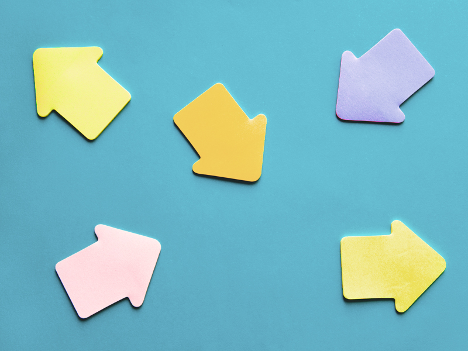
We take inspiration from the words of Surrealist painter Salvador Dalí when he said, “Have no fear of perfection — you'll never reach it”.
While it may seem like a pessimistic statement, it's a philosophy that Dalí passionately believed in. This seemingly bleak thought led him on the path of success to become one of the most celebrated artists of his era and beyond.
This is because aiming for perfection takes away the joy of learning, and joy is a much more powerful motivator than pressure or fear of failure. And at the end of the day, making mistakes is an intrinsic part of the journey towards excellence. This is because they provide valuable opportunities for growth and encourage children to explore new horizons, pushing themselves to learn, adapt, and achieve greater things.
So, how can you, as parents, help your child be successful in school and in life?
Why is Resilience Important for Learning?

If you find yourself questioning how your child can learn from their mistakes effectively, the answer lies in being resilient.
Resilience is a key factor in a student's educational journey since it's all about the ability to bounce back from challenges and difficult times. Children develop this skill when they face obstacles and learn to overcome them positively. This resilience is crucial for students as it helps them manage stress, anxiety, and uncertainty in their academic life.
But it's not just about recovering from a bad grade or a tough exam; it's about building the capacity to face and grow from these experiences, equipping students with the strength and adaptability needed for both school and life.
Why Teach Them to Roll with the Punches?
As you guide your child through their educational journey, it's essential to teach them that setbacks and failures are not the end but integral parts of the learning process.
Research from Columbia University highlights the positive impact of learning from mistakes. This study found that students who made errors and then received corrective feedback not only learned more effectively but were also able to remember the correct information longer. Interestingly, this benefit was most pronounced when students were initially confident in their incorrect answers. This underscores the importance of parents and educators in encouraging children to embrace and learn from low-risk mistakes while also providing clear and helpful feedback.
Moreover, recent findings in Singapore from the Organisation for Economic Cooperation and Development’s (OECD) latest Programme for International Student Assessment (Pisa) test revealed that 72% of Singaporean students are concerned about how others perceive their failures, and a significant 78% admitted to harbouring doubts about their future in the face of academic challenges. These statistics shed light on the prevalent anxiety related to making mistakes among students in Singapore.
Therefore, as easy as it might sound, by normalising errors and viewing them as learning opportunities, we can help children overcome their fears, too.
Here at The Learning Lab, we encourage students to aim to be the better version of their true selves, which includes learning from and growing through their mistakes. This encourages them to grow up to be joyful and self-aware adults with healthy dispositions.
To adopt this approach at home, reinforce the idea that every setback is a stepping stone to greater understanding by trying these tips:
1. Point out Areas of Improvement as Soon as Possible

If you find yourself questioning how your child can learn from their mistakes effectively, the answer lies in being resilient.
Resilience is a key factor in a student's educational journey since it's all about the ability to bounce back from challenges and difficult times. Children develop this skill when they face obstacles and learn to overcome them positively. This resilience is crucial for students as it helps them manage stress, anxiety, and uncertainty in their academic life.
But it's not just about recovering from a bad grade or a tough exam; it's about building the capacity to face and grow from these experiences, equipping students with the strength and adaptability needed for both school and life.
2. Avoid Judgment and Be Compassionate About Failure

Whatever the circumstances of your child’s performance or behaviour in school and at home, harsh judgement or punishment will not make it better.
Psychological research has observed that self-compassion helps in coping with academic failure because it allows students to see the situation objectively without excessive self-criticism, feelings of isolation, and over-identification with their experience.
Besides the academic side of things, you can also apply this to your child’s life outside of school. Instead of confronting your child and making him or her feel ashamed or embarrassed about a defeat or a mistake, try asking, “How do you feel about this?”
Chances are that your child doesn’t enjoy his or her failures any more than you do. As such, it’s important for children to feel safe and know that their parents will always support them. This will enable children to develop an inclination to learn and grow from their mistakes.
3. Teach the Skill of Evaluation and the Value of Accountability

It’s one thing to be a harsh critic and another to be an honest observer.
Being an honest observer is being able to detect the source of the mistake by going through the events that led to it without overthinking the details.
It’s about learning from the process without being negatively attached to the result. It is about asking, “Could I have achieved a different result?” followed by: “How?”
On the other hand, being a harsh critic is merely picking at the result without understanding the process.
For example, if your child got reprimanded at school for calling another classmate names, you could teach your child to be an honest observer and see things from the other child’s perspective. By doing so, your child would be better able to see how his or her words could have hurt his or her classmate.
That way, your child would learn to take responsibility and accountability for his or her actions going forward.
4. Express Appreciation When Your Child Admits to a Mistake

We like the words shared by American author and family therapist Virginia Satir:
“Feelings of worth can flourish only in an atmosphere where individual differences are appreciated, mistakes are tolerated, communication is open, and rules are flexible — the kind of atmosphere that is found in a nurturing family.”
Children are more likely to seek guidance from adults when they feel safe in admitting their mistakes. This trust and feeling of security could be exactly the assurance they crave in order to avoid setbacks and do better next time.
For example, if your child bullies a classmate but owns up to it and tells you, instead of launching into a tirade, you can explain why it is wrong to do so and share different ways he or she could resolve this. At the same time, tell your child how much you appreciate him or her coming to you about this. By doing so, you’re creating an environment of trust so your child will be more inclined to share any future issues with you.
5. Curb Avoidance and Blame Shifting

“He started it first” and “It’s not my fault” are common phrases that children may use to deflect the blame. This type of blame shifting happens when children blame others or external circumstances for their behaviour and mistakes.
When this happens, do remember that it is natural for your child to avoid the conversation over an issue and blame others for a mistake. After all, it is only human nature that no one likes facing negative consequences for their actions.
If your child did something wrong and is reluctant to own up to mistakes, he or she may shift the burden of blame to others. There shouldn’t be cause for alarm when this happens, but it is something that you can work on curbing together with your child.
If this situation ever arises, you can assure your child that it’s all right to admit to blunders and that taking responsibility for these errors is a courageous and decent quality to nurture. You can go on to brainstorm ways to avoid the situation in the future.
In circumstances involving more than one naughty party, ask your child: “What do you think your contribution was to this situation?” and “How would you avoid this from happening next time?”
Not only does this teach your child how to be mindful and aware of his or her behaviour in the future, but it also imparts problem-solving skills. These problem-solving skills can go a long way in your child’s growth, as the more ideas your child has in solving certain issues, the less likely he or she will commit the same lapses in judgement in future.
Embrace Mistakes as Opportunities to Learn
It is clear to see that mistakes are not only inevitable but also invaluable in the educational journey. This makes it essential for us, as adults — be it as parents or educators – to consistently remind our young learners that mistakes and failures are not just stumbling blocks but also important tools for growth and development. They are the stepping stones that lead to greater understanding and resilience, revealing new insights and “eureka” moments. Learning, after all, is an infinite journey with natural highs and lows.
At The Learning Lab, we are receptive to our students making mistakes. From each mistake made, regardless of whether it’s an academic or personal blunder, our teachers get to understand the students a little bit better. From there, our teachers would know what to do to go about solving these alongside our students.
Committed to guiding students through this journey while helping them to see the value in every mistake and to grow from each experience, The Learning Lab offers a range of programmes tailored to meet the needs of students at different stages of their education. This includes tuition classes for primary students and secondary school students. With the aim to be a good tuition centre for secondary and primary-level students, our approach is not just about academic excellence; it's about fostering well-rounded individuals who are prepared to face life's challenges with confidence and curiosity.
If you are a parent aiming to help your child be a successful student in and out of school, join us in this transformative journey of education. Together, we can support your child in becoming a resilient learner, ready to embrace challenges and turn them into opportunities for growth and discovery.
The Learning Lab is now at locations. Find a location that suits your needs.
If you have any questions about our range of programmes or class schedules, you may contact us at 6733 8711 or drop us an email at enquiry@thelearninglab.com.sg.

